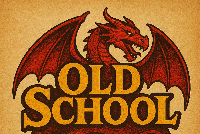Let me set up the scenario first, then I will get to my question. We are playing in an 'evil' campaign. I say this in quotes because we are generally more ambiguous than evil. Meaning we tend to be selfish, and adventure for loot and glory instead of saving damsels in distress. As an example we were on an adventure, found a maiden who was from a caravan that had been attacked by bandits and her family kidnapped and we... continued our journey towards our goal, leaving her basically to die. We are generally not friendly or openly helpful if we are not being paid to do so. We support the local corrupt government because they pay us. However, we don't outwardly murder innocents or burn villages. It's more like lacking a certain moral code than evil. Anyway I am playing a lizardman cleric (true neutral, not evil). We've been together for a while now, I have been sent by my tribe ot help the party after they helped us. In that adventure my druid had been killed by a lightning bolt when I was envelope din darkness because our stupid drow was trying to save himself. We do not play with a map, so I had no idea where I really was. Anyway, fast forward to tonight. We are investigating an old temple that was once dedicated to an old water goddess. It has since been taken over by a slime goddess. I had found myself in a situation where I communed with the old goddess, and had a certain affinity with her now. Along our dungeon crawl we find a large water elemental that is corrupted by the slime goddess. I get first initiative and begin a parlay. I use "purify water" and clear half the infection..next round I will clear the other half., it isn't specifically allowed by the rules of the spell, but it's a cool idea so it is allowed. I say to the party not to attack it. 2 turns later our CE Fire mage comes up and fireballs the thing. Needless to say the elemental goes bonkers and attacks her. I again repeat, don't attack. She, and the rest of the party does as well. Except our ranger who went and hid and out ninja, who did the same for half the fight or more. Regardless our wizard dies, then the rest of the party swoops in and kills the thing. I, as the cleric who spent the remainder of the fight bathing in the pool, get the blame. NOW - I did try to find a peaceful resolution. I also was out of spells, except for my stored orisons. I did have a wand of CLW with roughly 40 charges. Not enough, imo, to save anyone. I do feel kind of bad because we had finally hit 7th level, and this poor character (if we reincarnate her) will be behind us. I don't know that I could have saved her but there's the question... In a campaign like this, in a scenario like this... what is the obligation? What would you do? It's not the first time we've let another party member die. personally I hate playing like this, but I like my character and I like the group. What is the protocol here?
Play Now
Join a Game
Shop
Tools
Characters
Compendium
Community

Sign In










